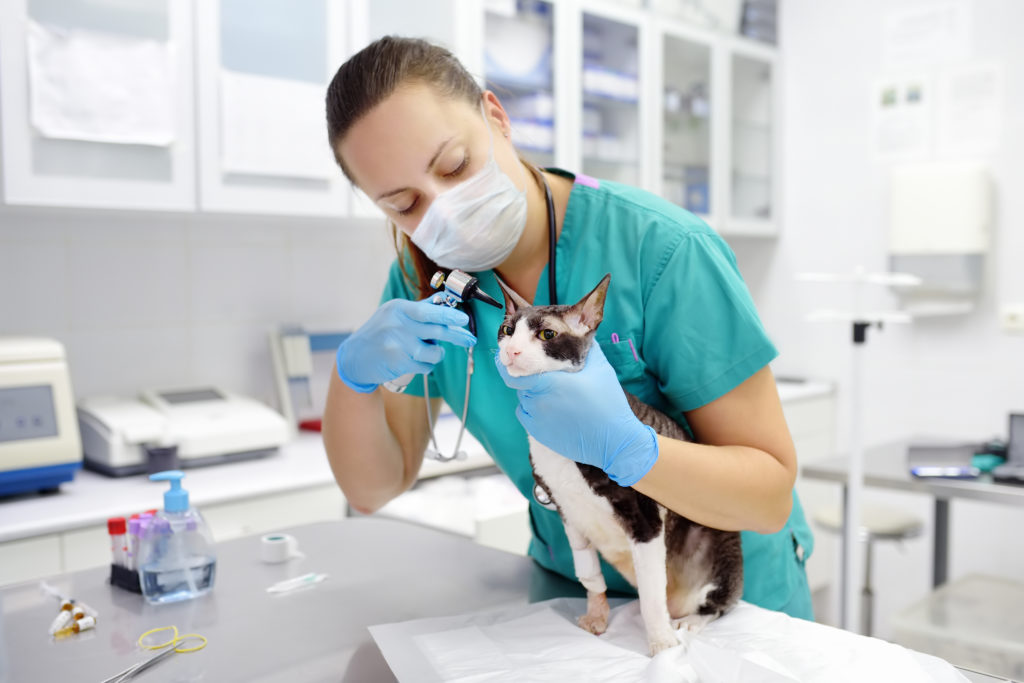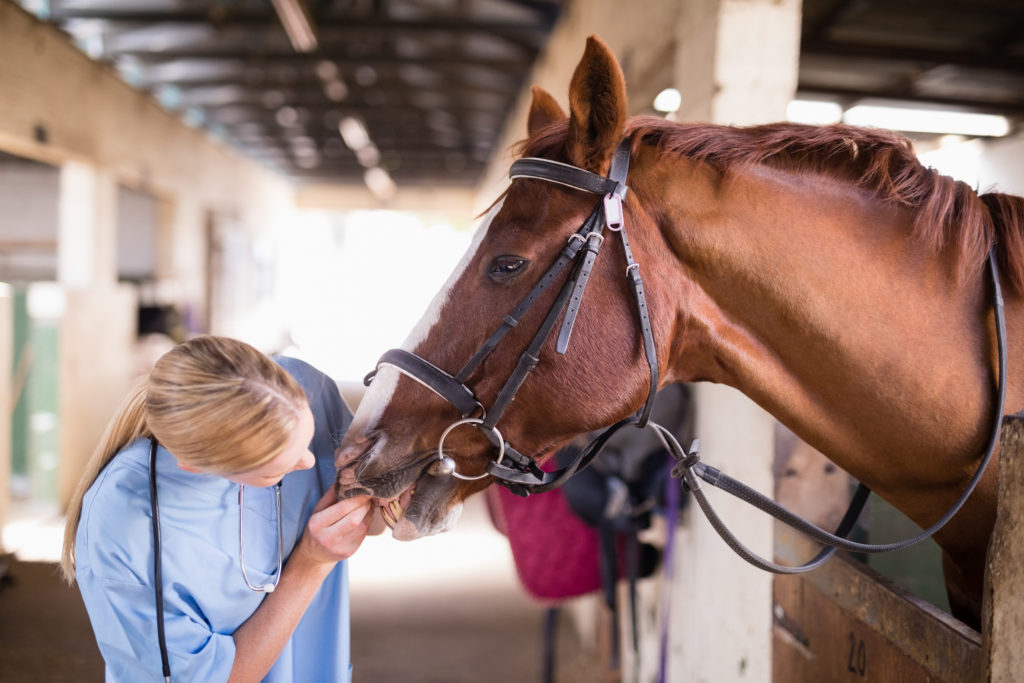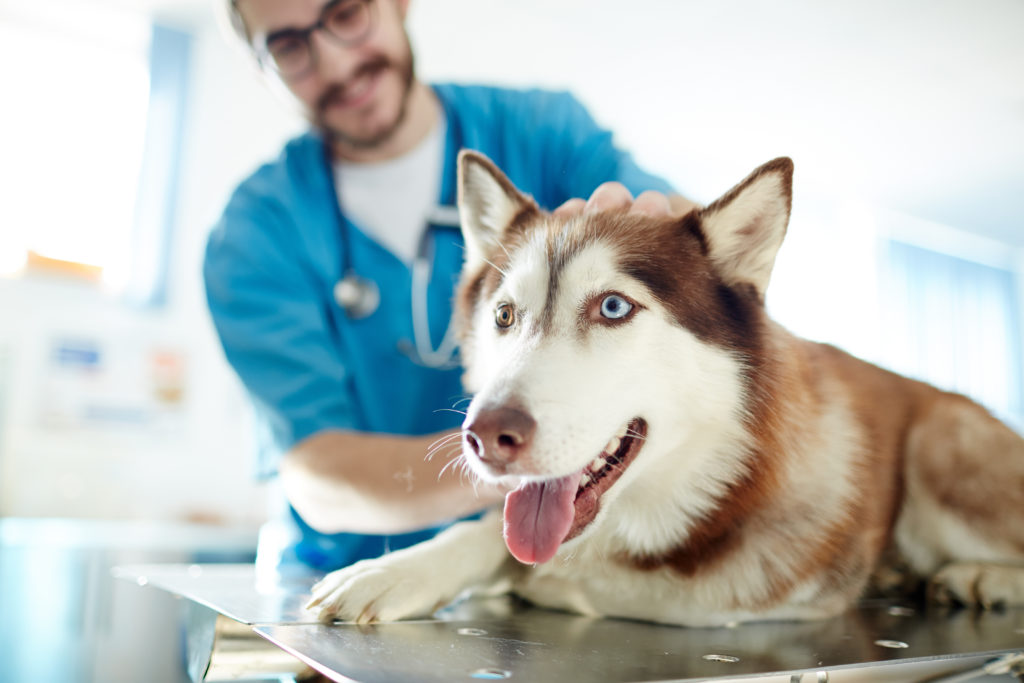
Do you love animals? Interested in veterinary medicine and want a career in the field? This job is rewarding on many levels. Your day-to-day tasks involve caring for animals. But the career also offers good pay and an opportunity to run your own business.
To become a veterinarian, you must earn a college degree. But what do you major in to become a vet? This article helps you determine the best pre vet majors. It also teaches you what life is like after college. Read on to find out which major for veterinarian jobs you should choose.
Degrees for Veterinarians
You know you need a degree to become a vet, but have you ever wondered what to major in to become a veterinarian? There are many different majors to become a veterinarian. Some might even surprise you because any undergraduate major will do.
What major do you need to be a veterinarian?
Surprisingly, you don’t need a bachelor’s degree to get into veterinary school. But most veterinary schools accept students who have completed pre-professional courses. Since acceptance to veterinary colleges is competitive, plan on doing all you can to make your application stand out. For some, this might mean completing an undergraduate degree program.
Veterinary schools require discipline and hard work, so plan on doing what you can early on. Fewer than half of all applicants gain entry into veterinary schools. Vet schools look for applicants with plenty of science courses. Prerequisite courses (pre veterinary classes) at a veterinary medical college include:
- Animal sciences
- Biology
- Chemistry
- Microbiology
- Physiology
- Veterinary technology
- Zoology
But pre veterinary students can major in any subject. It doesn’t have to be a science major as long as you complete the required pre vet classes. You don’t, however, have to earn an undergraduate degree to get into vet schools.
Popular Vet Major Choices
The best undergrad for vet school has a major that fits in the veterinary medicine field. This may be one of the animal sciences or animal behavior. It can also be wildlife biology. The point of the major is to show that you understand the basics of animal anatomy and animal behavior.
Biology Major
The most popular veterinarian major is biology. It offers science courses that lay a foundation for a career in the veterinary medical field. If you’ve ever wondered what major is veterinary medicine, the answer is biology.
Zoology Major
Zoology is another popular undergraduate major that veterinary colleges accept. It offers courses in basic sciences, such as chemistry and biology. It also offers classes that give you experience working with animals. These classes include animal anatomy.
Most veterinary colleges accept both majors and more. You can even earn an undergraduate degree in the humanities and get into veterinary school. But you have to finish your prerequisites before you apply.
A DVM Degree
Veterinarians must hold a Doctor of Veterinary Medicine degree to practice as a vet. You must earn the veterinary medicine doctorate from an accredited veterinary college. But to get into veterinary schools, you must complete pre vet courses or an undergraduate degree. These include animal and biological sciences. In some cases, you must also take the Graduate Record Examination (GRE).
The Doctorate of Veterinary Medicine is a four-year professional degree. It is usually preceded by three to four years of pre-professional studies, as stated above.
What Vet Schools Teach
As doctors attend medical school to learn to care for patients, veterinarians go to veterinary school. Here, you earn a Doctor of Veterinary Medicine degree. The four-year DVM prepares you for work as a veterinarian.
It takes four years to earn a DVM. You spend three years doing classroom and lab work. You also complete your clinical education. Your final year includes hands-on clinical rotation. Clinical rotations take place in a veterinary medical center or a hospital. It is where students work with different types of animals and emergencies. While you attend veterinary school, you can also get experience volunteering in animal shelters.
Your studies in veterinary school focus on three things:
- Diagnose
- Prevent
- Treat
In vet school, you learn how to examine an animal. You also learn how to diagnose and treat diseases and medical conditions. Your vet school curriculum covers anatomy and physiology of different types of animals. From domestic to exotic, you learn how to care for animals.
Some veterinary schools and programs at veterinary medical colleges offer business classes. These courses help veterinarians open their own private practices.
Once you complete your studies and rotation, you qualify for licensing. Veterinarians must earn a license to practice in their state. Read on to learn more about veterinarian licensing.

Licensing for Veterinarians
In the U.S., veterinarians must have a license to practice veterinary medicine, according to the American Veterinary Medical Association. Requirements for licenses vary by state. Most states want veterinarians to complete an accredited veterinary program. You must also pass the North American Veterinary Licensing Examination.
Many states ask that aspiring vets pass a state licensing and national exam. For veterinarians employed by state or federal government, a state license is not always required. The state exam covers all laws and regulations imposed and governed by that state. Rarely do states accept licenses from other states. Prospective vets take licensing exams for the states in which they want to practice. If you move to another state, you must take the licensing exam for that state to become a licensed veterinarian.
Important Qualities for Veterinarians
Now that you know what to major in to become a vet and what pre veterinary classes you should take, you should look at the qualities good vets have. Sure, you need education and licensure. But successful veterinarians also have other qualities that help them on the job. These qualities aren’t always taught in the classroom. They are soft skills that develop over time. Take a look at some of the qualities you should have after veterinary school.
Ability to solve problems
A veterinarian should have good problem-solving skills. Day-to-day tasks include assessing animals and responding to emergencies. Vets determine what is causing problems for an animal. They also figure out the best course of treatment.
Research vets spend time digging into the hows and whys of treatment and disease. As a researcher, you might look at the impact of certain drug therapies. Having the ability to solve problems helps you succeed on the job.
Communication skills
Veterinarians explain problems and treatment plans to animal owners. They give instructions to staff. They also provide at-home treatment plans for pet owners. Having effective communication skills helps to convey instructions and directions.
Compassion
When working with animals and owners of pets, you need compassion. Vets should treat animals with respect and kindness. They should also remain sensitive to an owner’s feelings when providing treatment.
Empathy
Veterinarians should have empathy toward animals and their owners. Vets show how much they care when they understand and share their feelings.
Manual dexterity
When a veterinarian performs surgery, he or she must have control over hand movements. You need precise hand movements. You also need manual dexterity when you perform certain surgeries and treatments.
Quick decision-making skills
When emergencies come up, veterinarians decide on the best course of treatment. You need quick decision-making skills to diagnose and treat under pressure.

Job Outlook for Veterinarians
There are many rewards to a career as a veterinarian. From strong earnings to the option of opening your own practice. But most veterinarians choose the job for reasons beyond financial benefits. They have a passion for working with and caring for animals.
If you want a career caring for animals, you can also enjoy a good job outlook. The Bureau of Labor Statistics (BLS) reports 17% growth in employment for the next ten years. The rate of growth is much faster than the average for all occupations.
As pet-related spending increases among consumers and pet owners, veterinary services also rise. The increase in demand for vet services means hiring more veterinarians.
There are other factors driving demand for vets. New advances in veterinary technology and services impact hiring. Today’s vets offer services that mirror healthcare exams and treatments on humans. Advanced services like complicated kidney transplants and cancer treatments are now offered to animals. These advancements drive the demand for more skilled veterinarians.
How Much Money Veterinarians Make
Healthcare practitioners make $2.5 million over their working lifetimes. And veterinarians are health practitioners. According to BLS, veterinarians earn average wages of $99,250/year. Since the average pay for practitioners is $69,870/year, you see how much more vets make over a lifetime. And the highest 10% of earners make over $164,490/year.
Pay for veterinarians varies by industry type. The BLS reports four top-paying industries for vets. These include:
- Educational services (state, local, and private)
- Government
- Social advocacy organizations
- Veterinary services
The highest paid industry for vets is vet services. In this industry, vets earn $99,300/year. Social advocacy pays the next highest wage of $98,000/year. Vets in government earn $94,610/year on average and $87,110/year in educational services.
Geographic location also impacts earnings for veterinarians. After you earn an undergraduate degree and graduate from veterinary school, it matters where you live.
5 Top Paying States for Veterinarians
New Jersey is the highest paying state for veterinarians. In this state, you can expect to earn an average of $128,430/year.
Other top paying states include:
- Maryland – $128,120/year
- District of Columbia – $127,310/year
- Rhode Island – $126,630/year
- Oregon – $122,840/year

Top Paying Cities for Vets
Earnings also vary by city. There are top paying metropolitan areas in which you can work as a veterinarian. These cities offer higher than average wages. But they also have higher costs of living that can impact your bottom line.
The highest paying metro area for veterinarians is Houston, The Woodlands, and Sugar Land, Texas. In this metro area, vets earn an average pay of $169,220/year. This wage is about $70,000 more than the average for this occupation.
Other high paying metro areas include:
- Bridgeport, Stamford, and Norwalk, Connecticut – $150,370/year
- Akron, Ohio – $150,330/year
- Ogden and Clearfield, Utah – $150,310/year
- Modesto, California – $149,460/year
Top Paying Non-metro Areas for Vets
Top-paying non-metro areas for veterinarians include several eastern locations. But the highest paying nonmetro region is Eastern Sierra and Mother Lode, California. In this area, veterinarians earn $139,160/year on average.
Southern Florida is another top paying nonmetro spot for vets. Here, veterinarians earn$135,160/year on average. Northern Pennsylvania also offers high wages. In this area, vets make an annual wage of $130,080/year. Southwestern Mississippi also ranks high for wages. Here, vets earn $129,750/year. Southern Vermont is the fifth-highest-paying non-metro area for veterinarians. In this region, you can earn $125,740/year on average.
Work Environment of Veterinarians
According to the BLS, vets hold approximately 89,000 jobs in the United States. Of this number, 76% of vets work in veterinary services. You find veterinary services in:
- Animal care facilities
- Animal hospitals
- Clinics
14% of vets are self-employed. 3% percent work in government. 1% works in education services. Another 1% works in social advocacy organizations.
You find most vet jobs in:
- Animal hospitals
- Other animal care treatment centers
- Private clinics
But some vets travel to farms or work in:
- College classrooms
- Laboratories
- Zoos
Some veterinarians treat domestic animals, such as cats and dogs. Others work with farm animals. A small percentage work in food safety and inspection. Specialized vets inspect food processing plants, farms, and slaughterhouses. They ensure facilities adhere to safety protocols.
Most veterinarians work forty hours per week. But some work extra hours. When emergencies arise, veterinarians work nights and weekends.
The job is stressful at times. Some of the work is triggering and emotional, as vets care for abused animals. Dealing with the stress of euthanizing a sick or ailing pet is also difficult.
Veterinarians also face physical risks, such as animal bites and scratches. Vets who work with large animals face even more dangers.
But to offset the risks and emotional wear and tear, the rewards are great. Seeing an animal heal from injury or illness is rewarding.
As you consider a career as a veterinarian, it is important to research college courses and majors that will help you on your journey.
Sources:
Related Resources:
This concludes our article on the best degree path to becoming a veterinarian.
